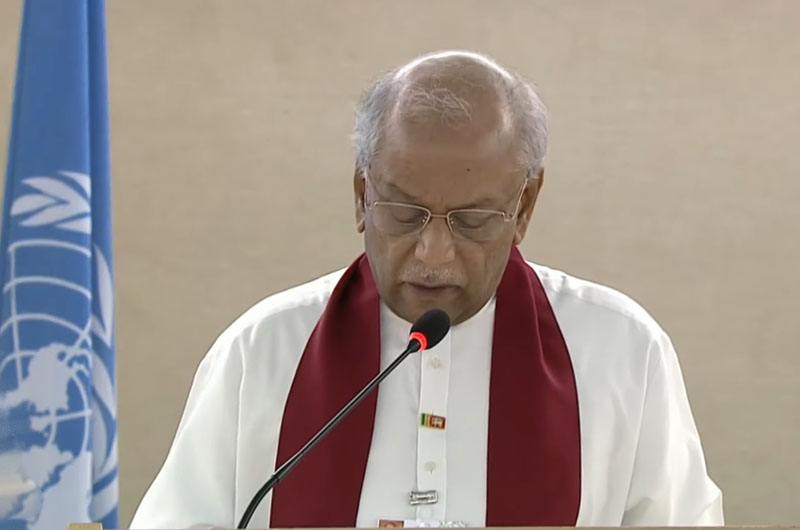Colombo wants to domestically handle the accountability and reconciliation in the country
On February 26, Sri Lanka officially notified the United Nations Human Rights Council that they would be withdrawing from the Rights Resolution which ensured accountability and reconciliation post-war in Sri Lanka. This means that Sri Lanka would no longer be co-sponsoring the Resolution which ensures promotion of reconciliation, human rights, and accountability in Sri Lanka.
Minister of Foreign Relations Dinesh Gunawardena announced the decision in the 43rd session of the UNHCR held in Geneva. This statement was in succession to the similar announcement made by Prime Minister Mahinda Rajapaksa and President Gotabaya Rajapaksa earlier in January. He ensured that the nation is working on a domestically designed and executed plan of action and ensured the Council that they are very much “committed to” achieving “sustainable peace and reconciliation”. UNHCR is yet to release a comment on this announcement.
Former Prime Minister Ranil Wickremesinghee2 pointed out that Sri Lanka cannot officially pull out of this resolution until 2021. He explained that the Resolution is set to be completed by 2021 and till then Sri Lanka will have to play its part as the co-sponsor. After 2021, the government can decide whether they want to continue their association with the next resolution or not.
The resolution was set up in 2015 with the UNHCR, Sri Lanka and 11 other countries to probe allegations of rights violation abuses post-civil war in the South Asian country. This resolution was perceived as a “bold step” by the government and people of Sri Lanka and international communities. However, Sri Lankans were concerned about the pace of the investigation and whether the government would be able to fulfil the commitments on time. In 2017, the government asked for an extension of two more years in the deadline to conduct extensive investigations. The Council approved the extension request in 2019.









